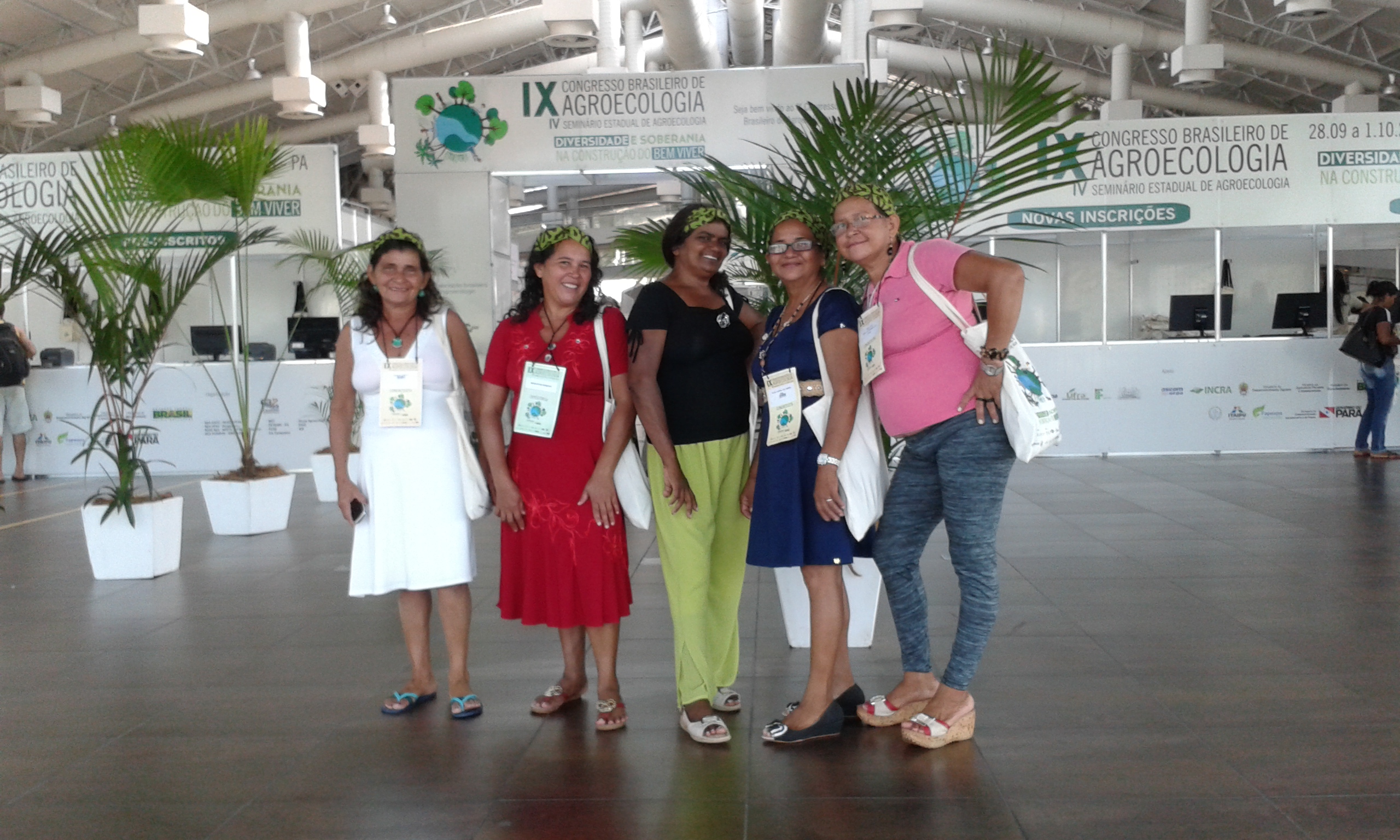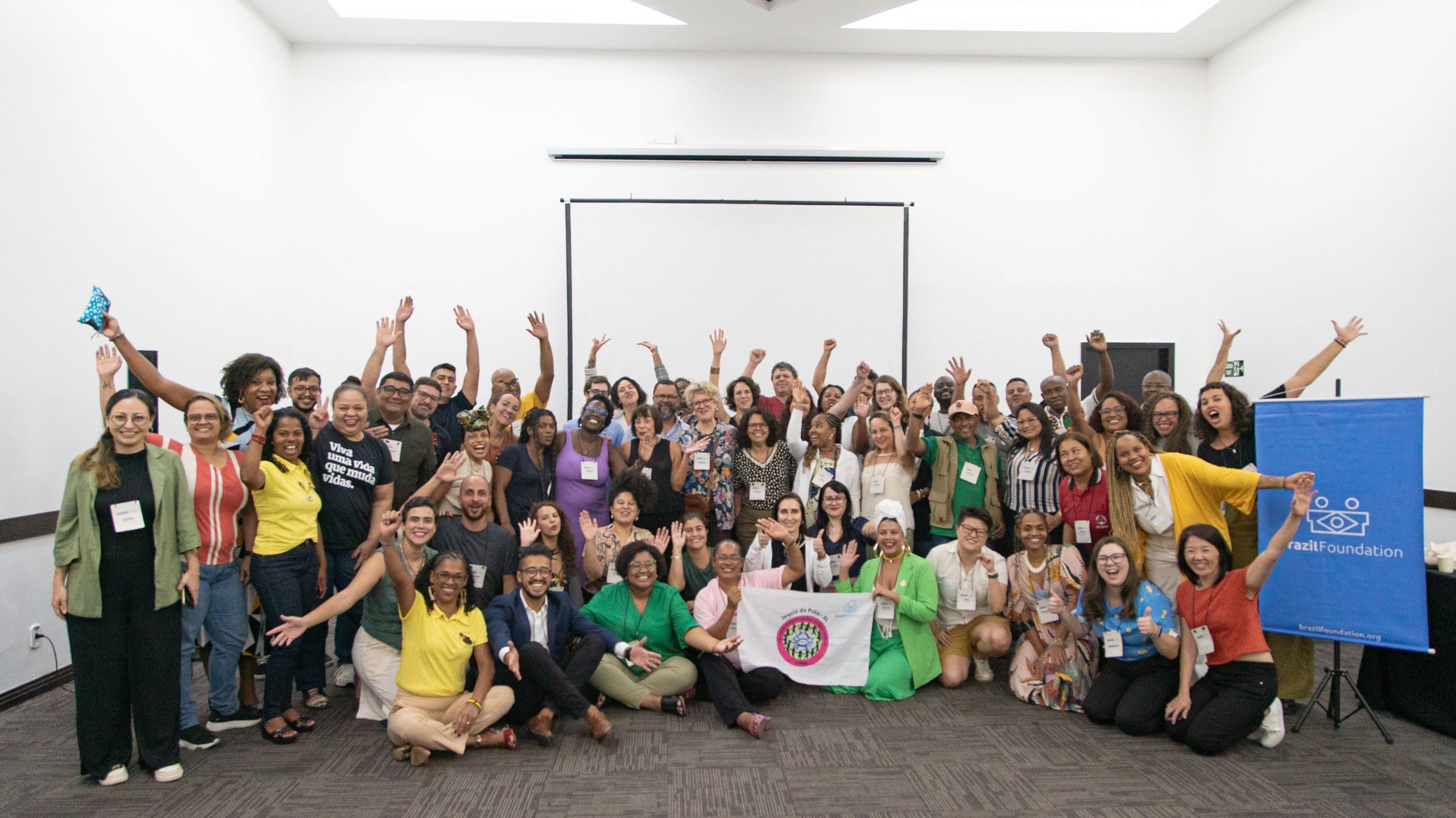Since constructing the Casa do Rio Tupana, artisans from Teçume have tripled their income and gained economic independence
The women from communities on the Tupana and Igapó Açu rivers are making history in the Amazonian region. In early October several of these women represented their riverside communities at the IX Congresso Nacional de Agroecologia – a great achievement for these women who only one year ago were economically dependent on their husbands.
The women are part of the group of artisans from the Teçume project, an initiative of Casa do Rio Tupana. The project offers training to local artisans for production and marketing of straw and wood products, with the goal of fostering entrepreneurship, liberating the riverside women, and influencing the region.
Casa do Rio Tupana, an organization that works for sustainability in the Amazon, women’s equality, and a more equitable Brazil, has been a BrazilFoundation grantee since 2014.
Here are stories of some of the women participating in the project:
 |
Dona RitaDona Rita, 48, came with her family to Rio Tupana as a child. She married Edmilson, had seven children and is now a grandmother. In her backyard she plants and harvests cupuassu, cassava, nuts and yams to feed the family and to sell for extra income. Dona Rita is skilled with her hands. Her woven baskets are impressive, made with great care. Her braiding is firm, as is her stance; she is an opinionated woman, at first skeptical of others, but then warm and embracing. One of the most involved women of the Teçume group, she possesses great technical skills and the spirit of a leader. Her first trip by plane was with the Casa do Rio to Belém do Pará for the 9th Congresso Brasileiro de AgroEcologia. The trip made her feel very good – her self esteem is greater, she stands taller, and her household income has tripled. Now, Dona Rita has even bigger plans – she wants to learn to read.
|
 |
Dona BrancaA woman of indigenous Mura ancestry, Dona Branca was born in Rio Tupana, where she lived for most of her life – now age 47. She lost her father at an early age and had to look after herself, learning to fish and hunt. She married Aurimar young, with whom she has seven children and nine grandchildren. Branca designed a straw purse through the artisan group of Teçume, partnering with designer Luly Vianna, from the São Paulo brand Saissu. The bag, called “Paricá”, is already on the market. For Branca, it is as if the bag is “carrying” her dreams for a better life. Her children, and even her husband – who earlier on prohibited Dona Branca from joining the Teçume group – are proud of her work. Her husband, who now supports her work, is a forager in the Ambe forest, takes care of the plants so they never run out of raw material for the production of the Paricá bag. |
 |
MarcineideMarcineide, 28, just left her husband. This kind of decision is not easy for a woman from Rio Tupana, particularly for those who have many children to raise. But, Marcineide managed to break free. She has gained financial independence from working with Teçume, producing frames with banana fiber, flour and delicacies to support her 5 children. Marcineide’s courage motivates and excites others, inspiring Casa do Rio to want more and to involve more and more women who, with just a small opportunity, could completely transform their lives. |
Dona Mocinha
Dona Mocinha is president of Tupana-Igapó Açú II, a community next to Santa Izabel. She was widowed last year after taking care of her ill husband for three years while he battled cancer.
She came to Teçume when its project leaders were working to formalize their group and starting to expand. Dona Mocinha’s experience working in tourism will bring opportunities and knowledge for the group. Her participation is crucial for the training of new entrepreneurs, for her leading role inspires confidence in other women who, like her, want to fully take on their role as women.

